Nuclear weapons testing — 75 years
Categories: Catastrophes | History
By Pictolic https://pictolic.com/article/nuclear-weapons-testing-75-years.htmlSince the first nuclear explosion, codenamed Trinity, on 16 July 1945, was held for nearly two thousand atomic bomb tests, and most of them have been in the 60-70-ies. When this technology was new, tests were carried out frequently, and the spectacle they were something else. They all led to the development of new and more powerful nuclear weapons. But with 1990-x years the governments of various countries began to restrict future testing to take at least a moratorium, the U.S. and the UN Treaty on comprehensive ban of nuclear tests. Should we behave as owners with our stockpile of nuclear weapons?
We have collected photos of the first 30 years of testing nuclear bombs.
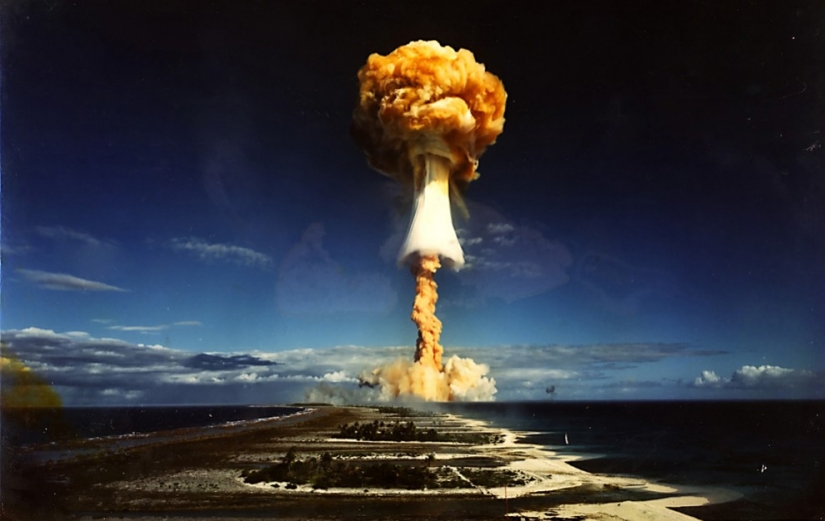

Nuclear test Upshot-Knothole Grable in Nevada may 25, 1953. 280-millimetrovie nuclear projectile flew from the cannon M65 detonated in the air about 150 feet above the ground — and exploded with a power of 15 kilotons. (U. S. Department of Defense)
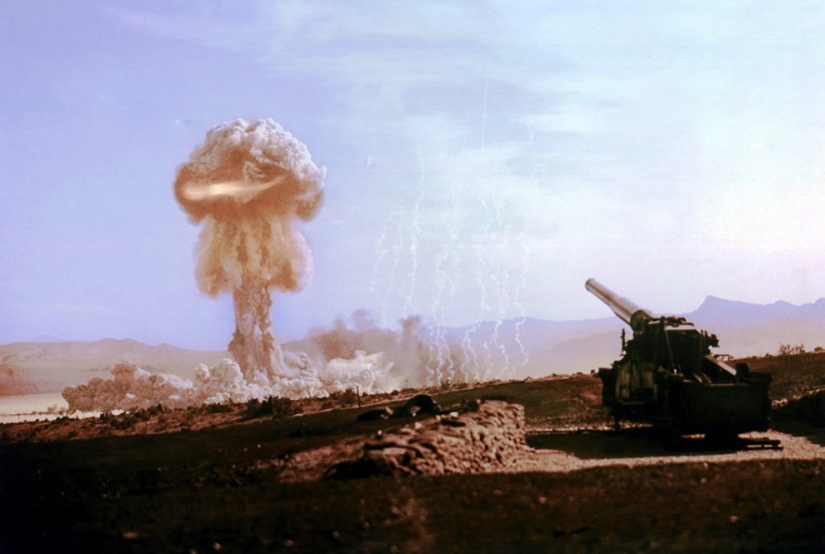
Open wiring of a nuclear device code-named The Gadget (the informal name of the project Trinity) — the first test of an atomic explosion. The device is prepared for the explosion, which occurred July 16, 1945. (U. S. Department of Defense)
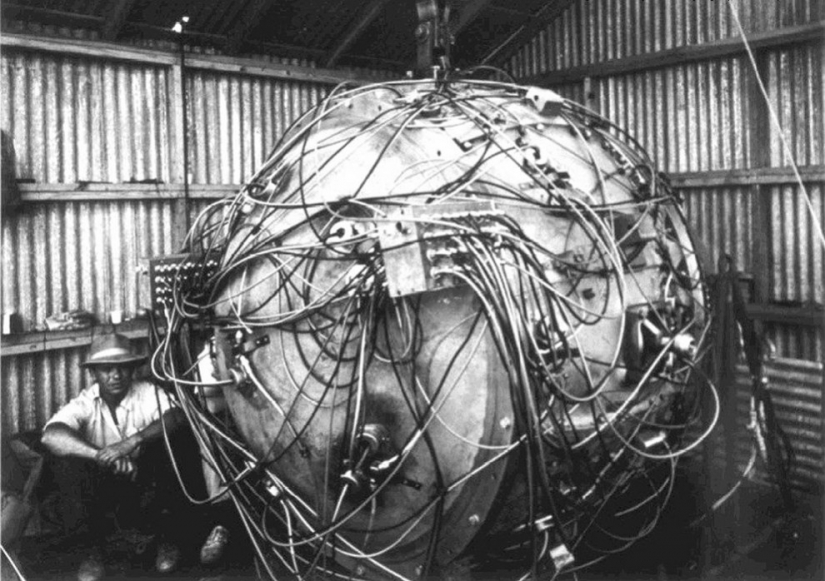
Shadow Director of the national laboratory Los Alamos J. Robert Oppenheimer, supervising the Assembly of the projectile Gadget. (U. S. Department of Defense)
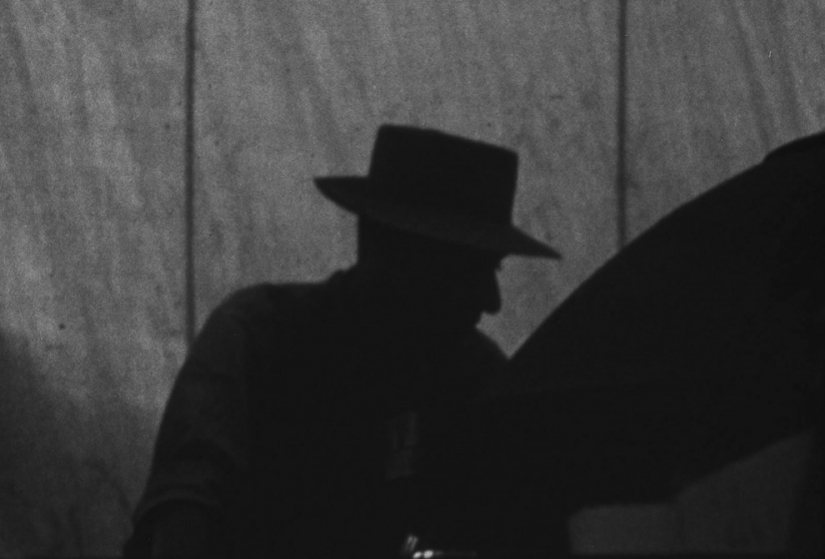
A 200-ton steel container "Jumbo" used in the project "Trinity", was made for the recovery of plutonium if the explosives suddenly start a chain reaction. In the end Jumbo was not useful, however, he was placed near the epicenter to measure the consequences of the explosion. Jumbo survived the explosion, what can be said about his supporting frame. (U. S. Department of Defense)
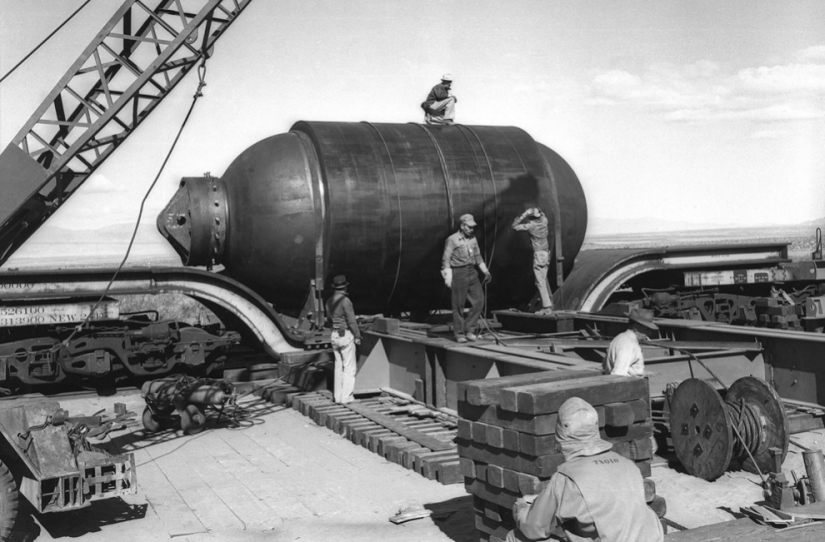
Growing fireball and shock wave of the explosion, the "Trinity" through 0.025 seconds after the explosion, 16 July 1945. (U. S. Department of Defense)
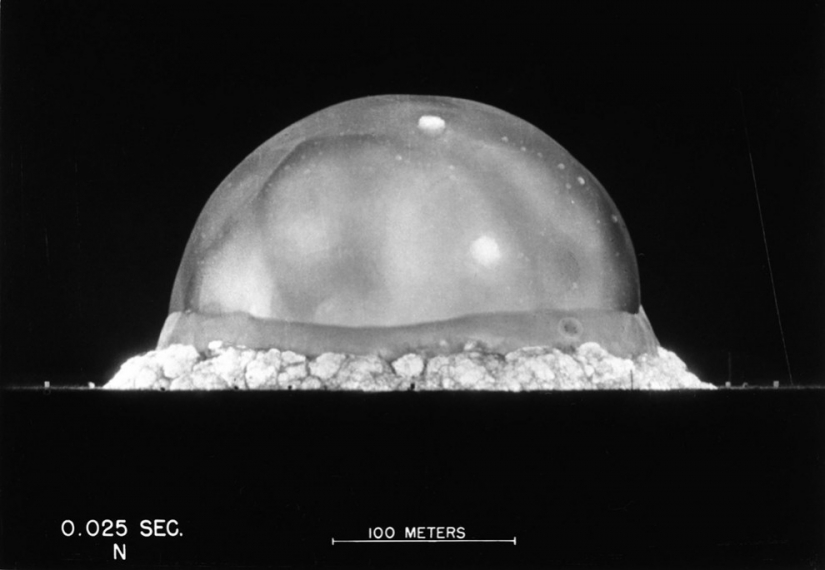
Photo explosion "Trinity" with long exposure a few seconds after detonation. (U. S. Department of Defense)
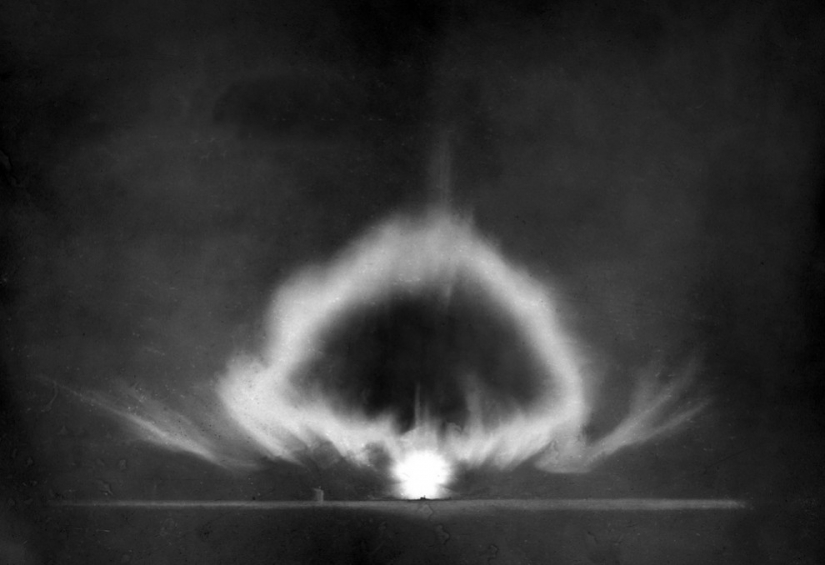
Fireball "fungus" of the first atomic explosion in the world. (U. S. Department of Defense)
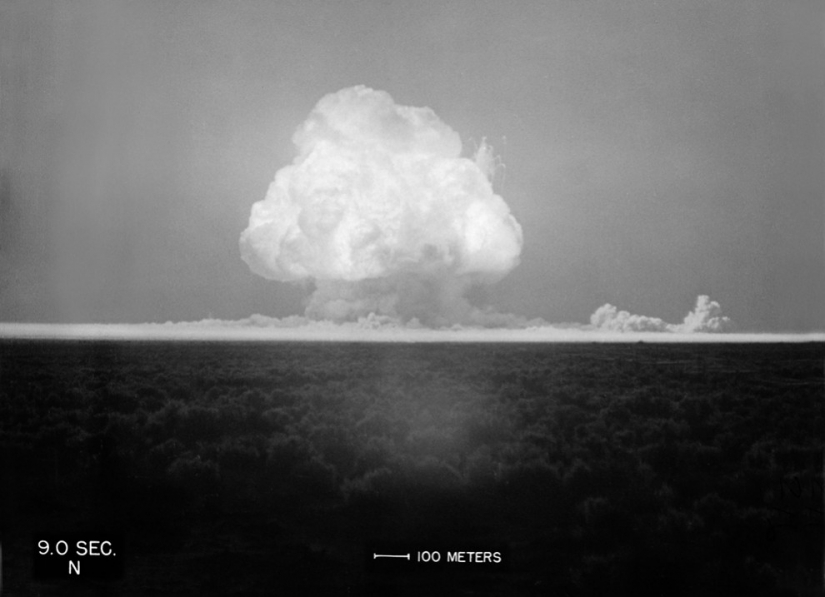
Us military watch the explosion during operation Crossroads at Bikini Atoll on 25 July 1946. It was the fifth nuclear explosion after the first two test and two atomic bombs dropped on Hiroshima and Nagasaki. (U. S. Department of Defense)
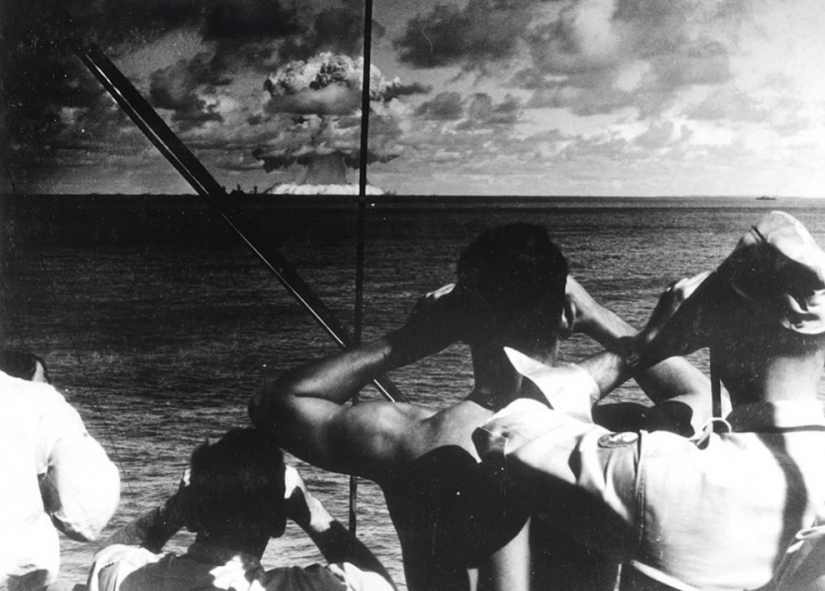
Mushroom cloud and pillar of spray in the sea during the nuclear bomb tests at Bikini Atoll in the Pacific ocean. It was the first underwater test of the atomic explosion. After the explosion, several former military ships stranded. (AP Photo)
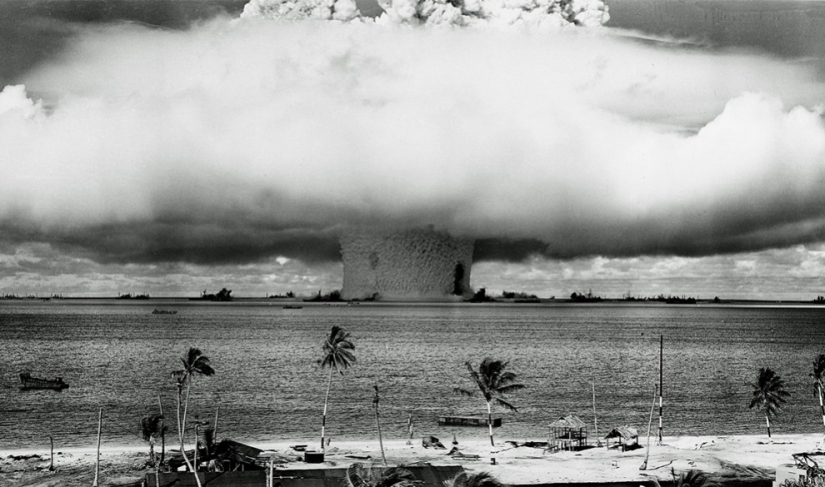
A huge mushroom cloud after a bomb explosion at Bikini Atoll on 25 July 1946. Dark spots in the foreground — ships, placed specially on the way of the blast wave to check what she'll do with them. (AP Photo)
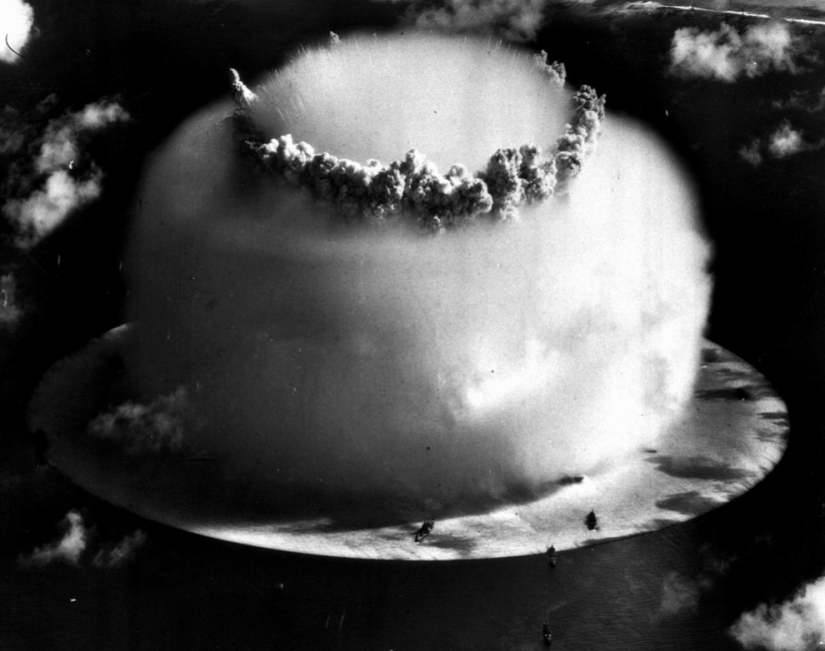
16 Nov 1952 bomber B-36H dropped an atomic bomb on Northern part of the island of Runit in the enewetak Atoll. The result is a blast yield of 500 kilotons and a diameter of 450 meters. (U. S. Department of Defense)
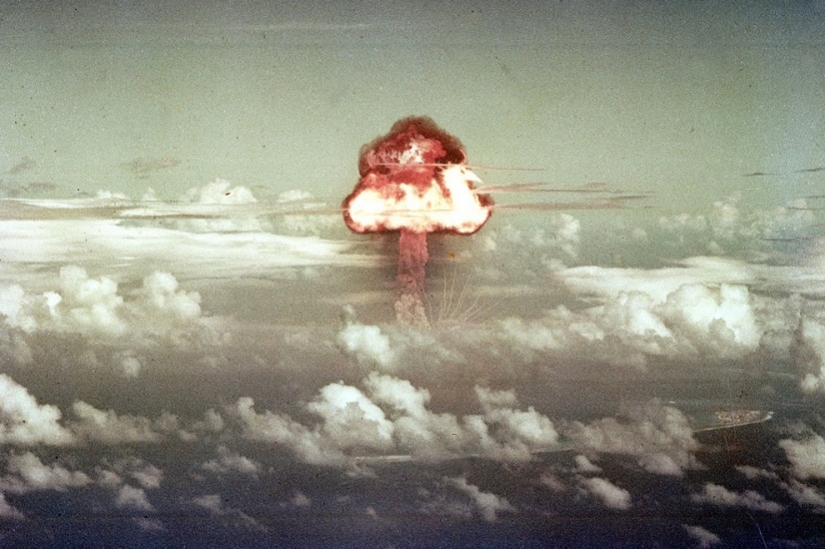
Operation "Greenhouse" was held in the spring of 1951. It consisted of four explosions at the Pacific nuclear test site in the Pacific ocean. This is a photo of the third test, codenamed "George", held on 9 may 1951. He became the first explosion, which burned deuterium and tritium. Capacity — 225 kilotons. (U. S. Department of Defense)
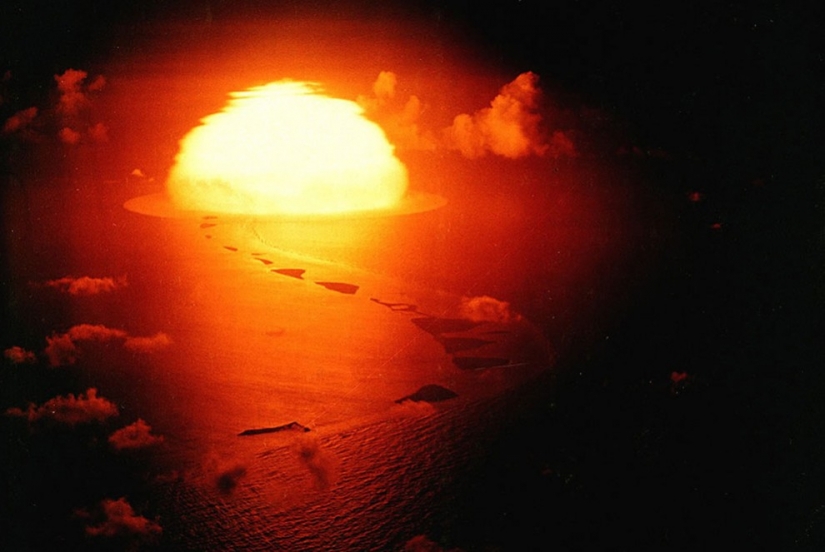
"Rope tricks" a nuclear explosion, captured in less than one millisecond after detonation. During the operation "Tumbler-Snapper" in 1952, this nuclear device was suspended 90 feet above the Nevada desert on the mooring cables. As the proliferation of plasma emitted energy overheated and burned through the ropes on a ball of fire, with the result that you get these "spies". (U. S. Department of Defense)
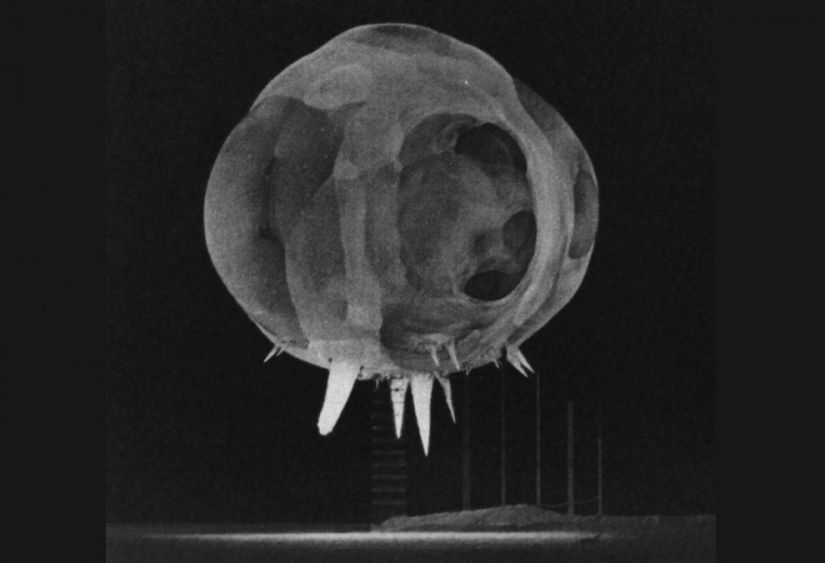
During the operation "Upshot-nethol a" group of dummies were put in the dining room of the house, to test the effect of a nuclear blast on buildings and people. March 15, 1953. (AP Photo/Dick Strobel)
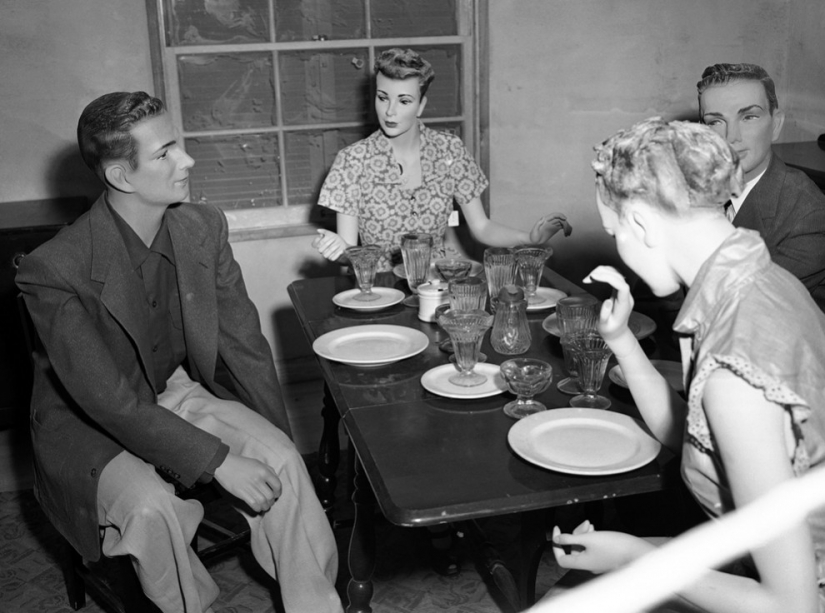
That's what happened to them after a nuclear explosion. (U. S. Department of Defense)
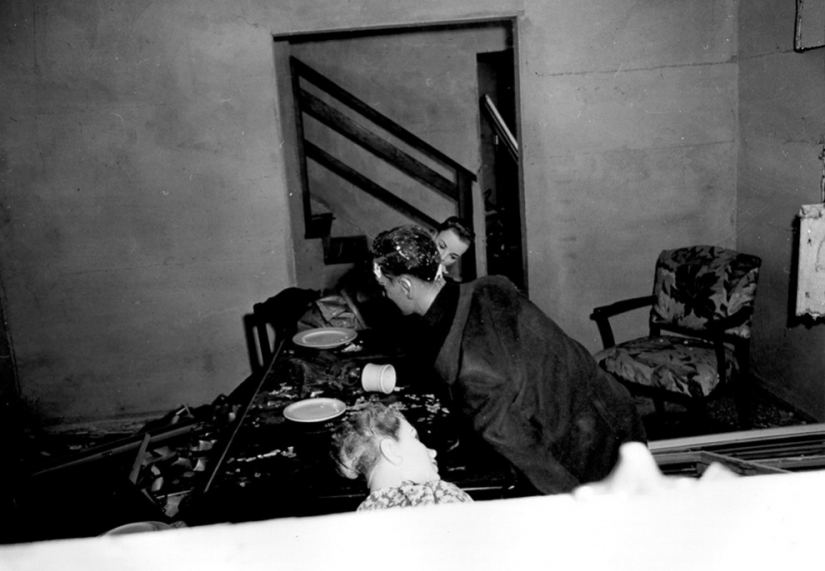
In the same house number two on the second floor in the bed was another mannequin. In a window visible to a 90-meter steel tower, which will soon explode the nuclear bomb. The purpose of the test blast is to show people what would happen if a nuclear explosion happens in an American city. (AP Photo/Dick Strobel)
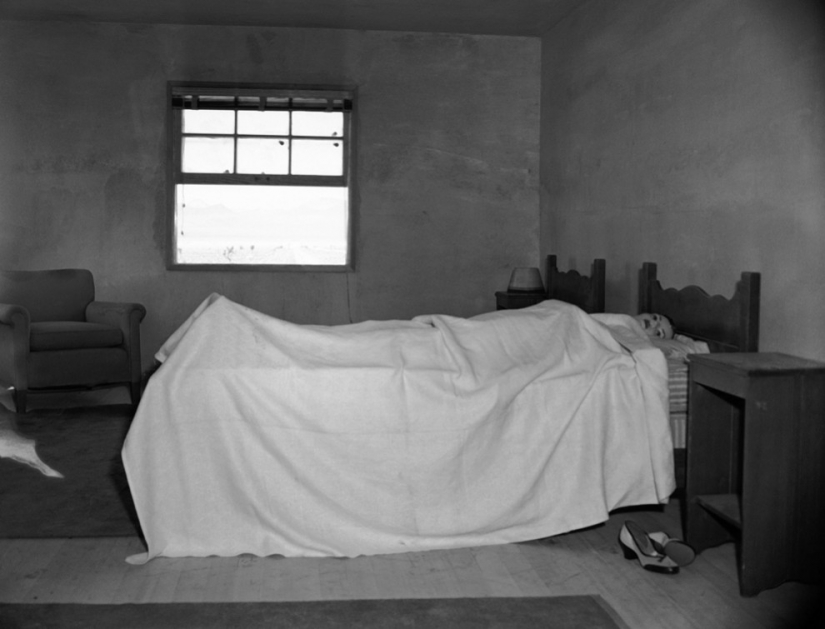
Damaged bedroom, window and disappeared to God knows where a blanket after the test explosion of the atomic bomb on 17 March 1953. (U. S. Department of Defense)
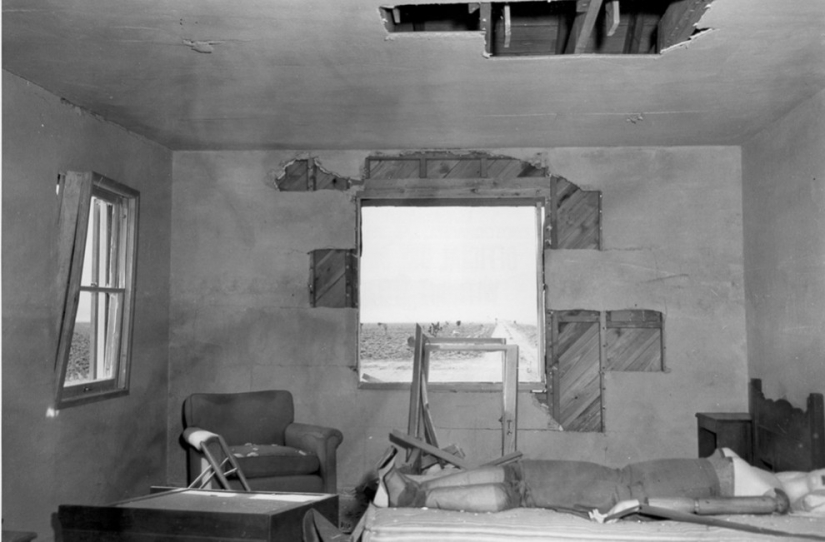
Mannequins representing a typical American family in the living room of the test house No. 2 on the territory of the nuclear test site in Nevada. (AP Photo)
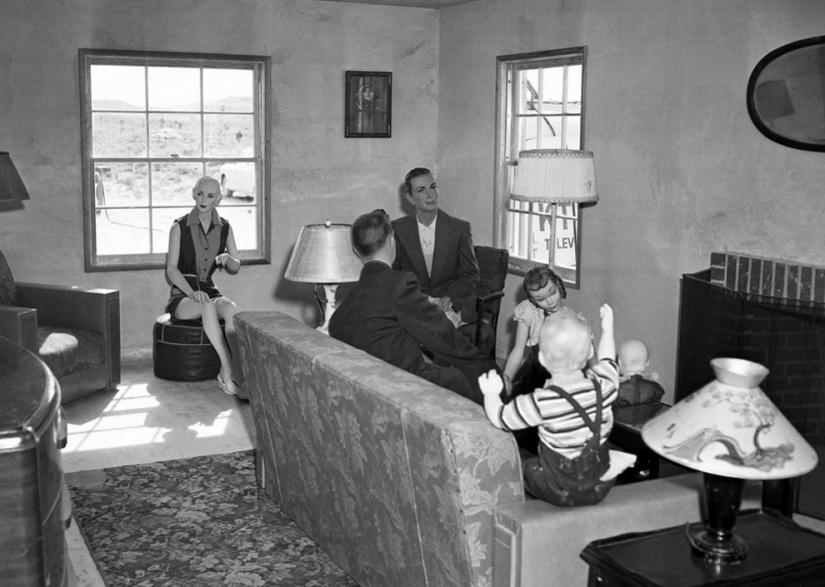
The same "family" after the explosion. Someone scattered throughout the living room, someone was just missing. (U. S. Department of Defense)
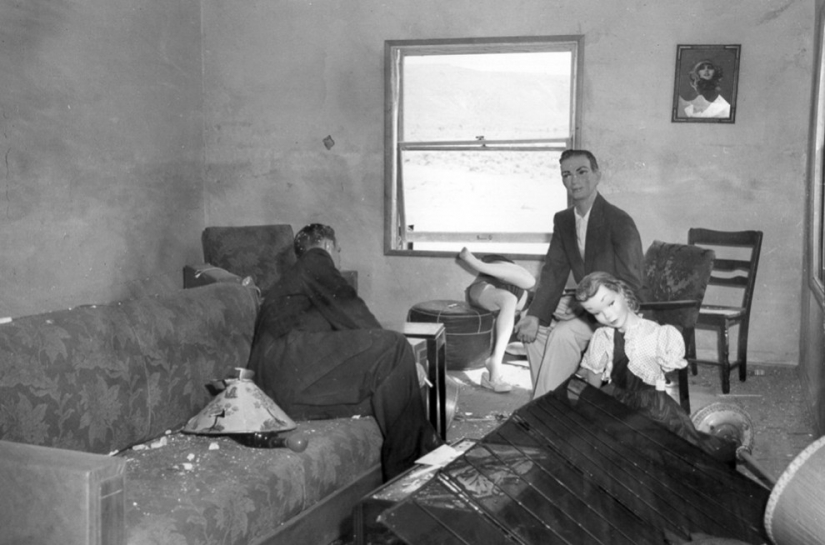
During "operation Plumb Bob" at the nuclear test site Nevada 30 August 1957 shell detonated from a balloon in the desert of Yucca flat at a height of 228 meters. (National Nuclear Security Administration / Nevada Site Office)
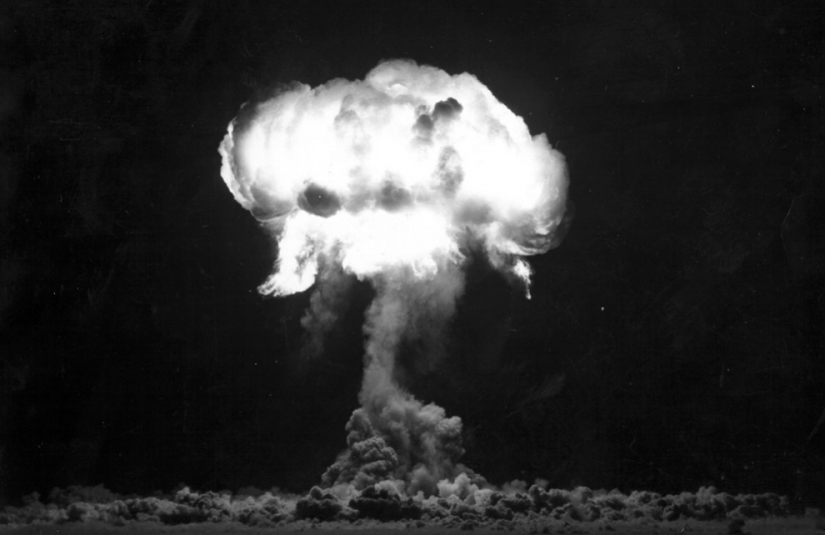
Test explosion of a hydrogen bomb during operation "Redwing" over Bikini Atoll on may 20, 1956. (AP Photo)
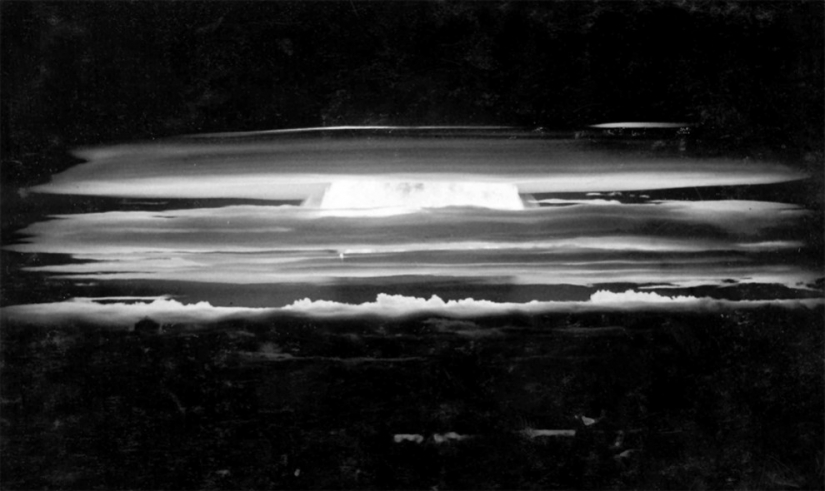
Ionization glow around the cooling fireball in the desert Yucca at 4:30 in the morning on 15 July 1957. (National Nuclear Security Administration / Nevada Site Office)
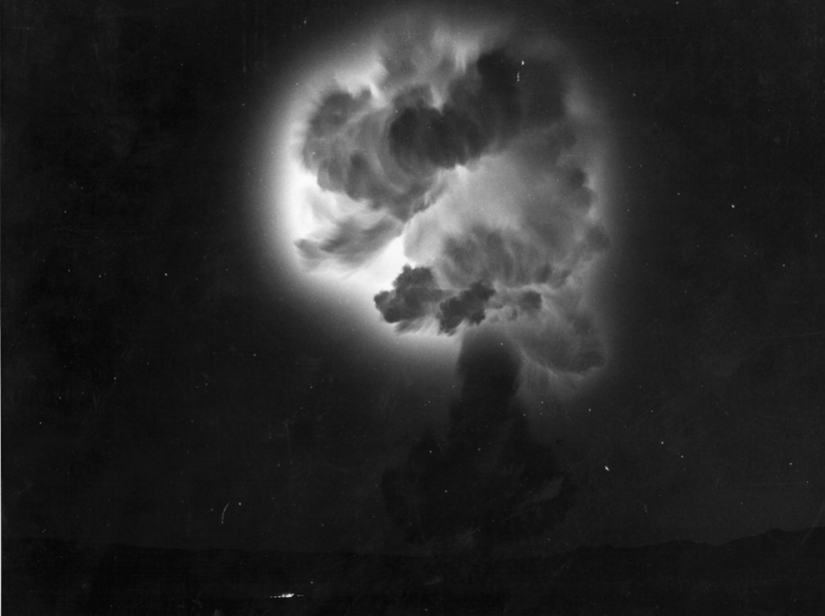
The flash exploded a nuclear warhead of the missile of class "air-air" at 7:30 in the morning on 19 July 1957 at the air force base Indian Springs, 48 km from the explosion site. In the foreground is the same type of aircraft "Scorpion". (National Nuclear Security Administration / Nevada Site Office)
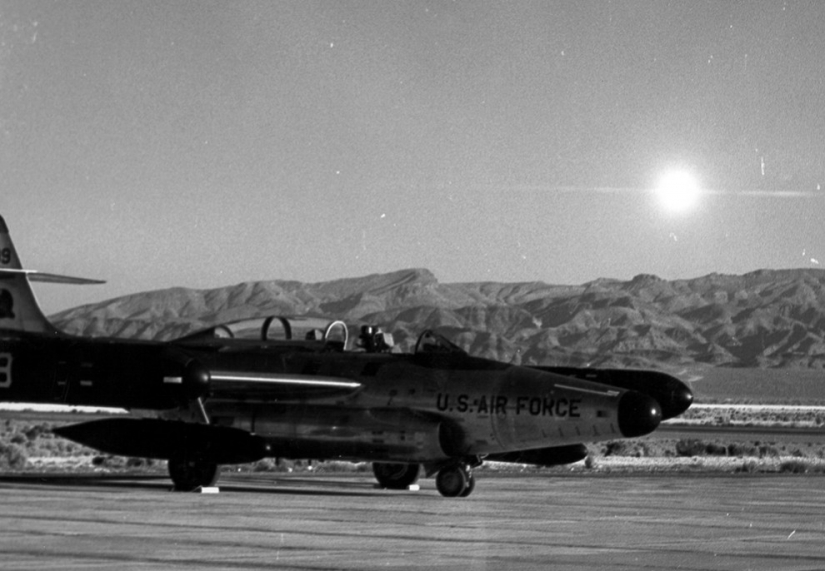
Fireball projectile "Priscilla" June 24, 1957, during a series of operations of "Plumb". (National Nuclear Security Administration / Nevada Site Office)
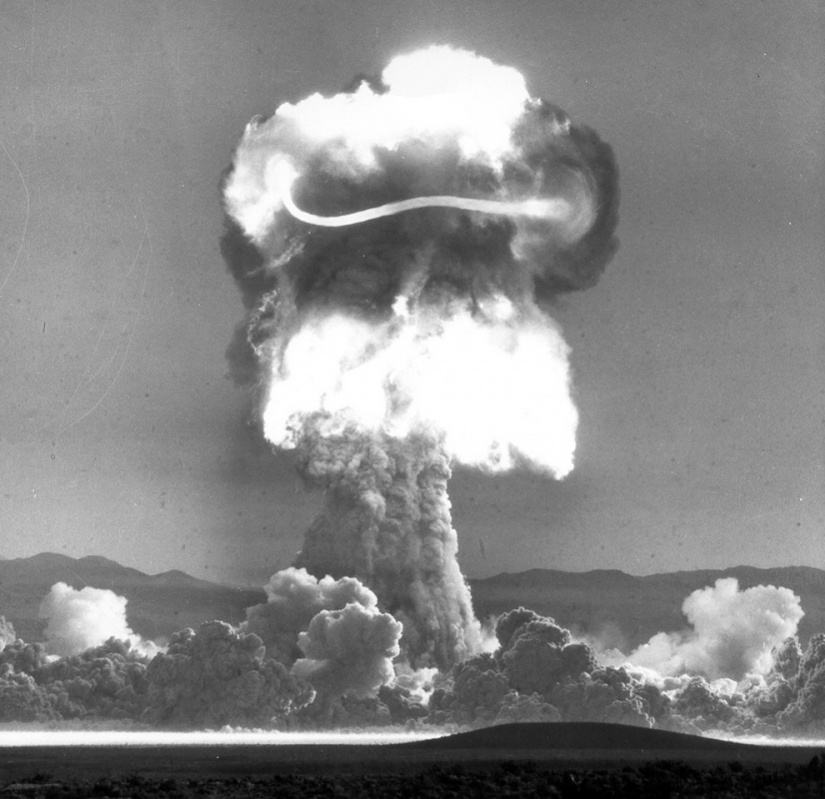
NATO officials watch the explosion during operation "Boltzmann" may 28, 1957. (National Nuclear Security Administration / Nevada Site Office)
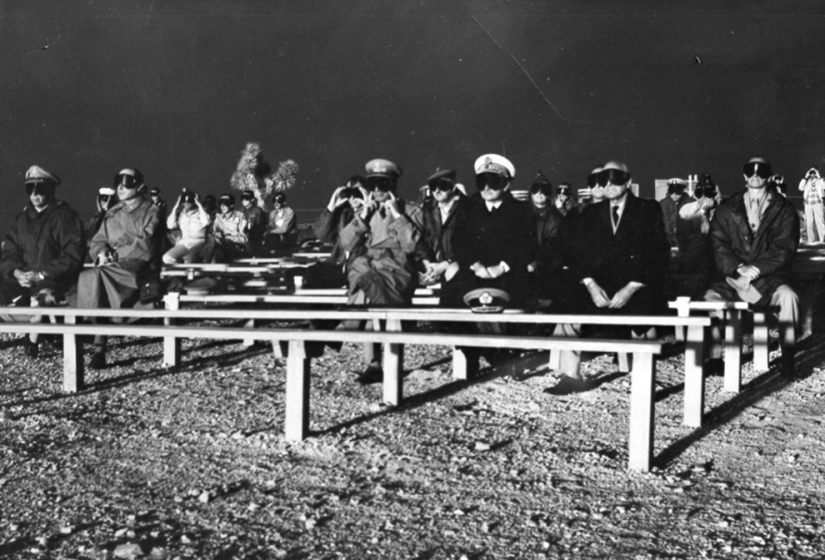
The tail of the dirigible of the American Navy after the nuclear tests in Nevada, August 7, 1957. The airship hovered in free flight, more than 8 km from the epicenter, when he was overtaken by the blast wave. The airship was empty. (National Nuclear Security Administration / Nevada Site Office)
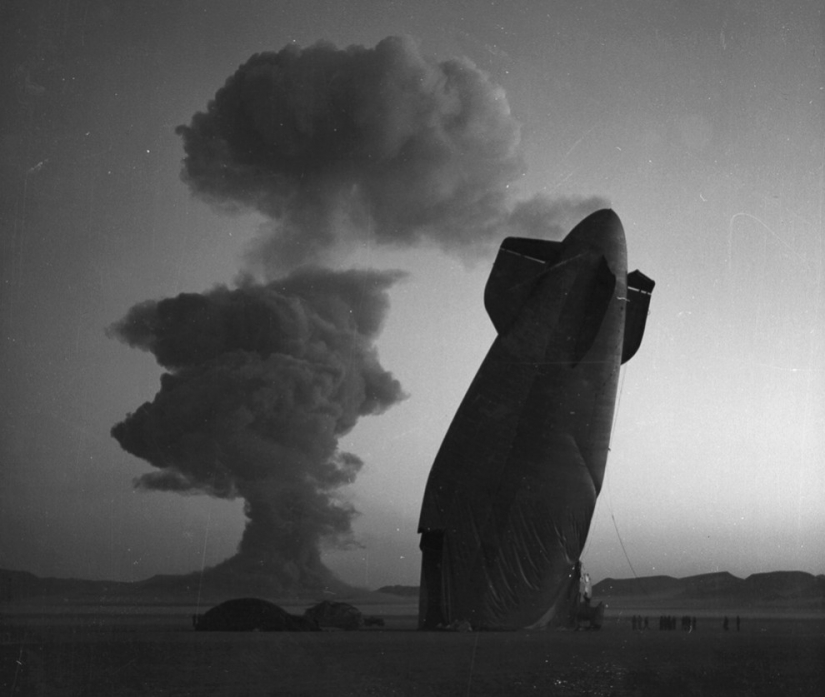
Observers during operation Hardtack I — thermonuclear explosion in 1958. (National Nuclear Security Administration / Nevada Site Office)
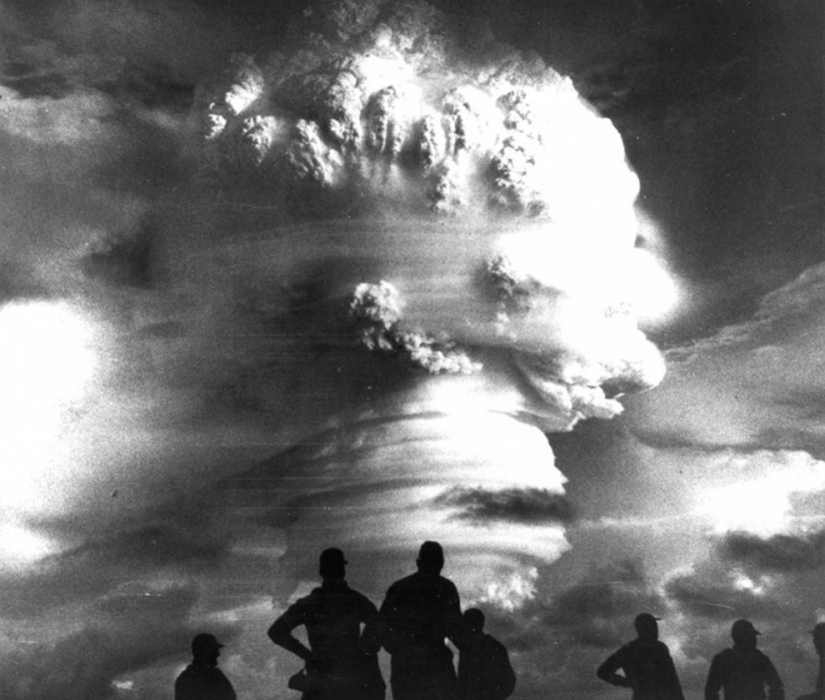
Test Arkansas — part of the "operation Dominic" series of more than a hundred explosions in Nevada and the Pacific in 1962. (U. S. Department of Defense)
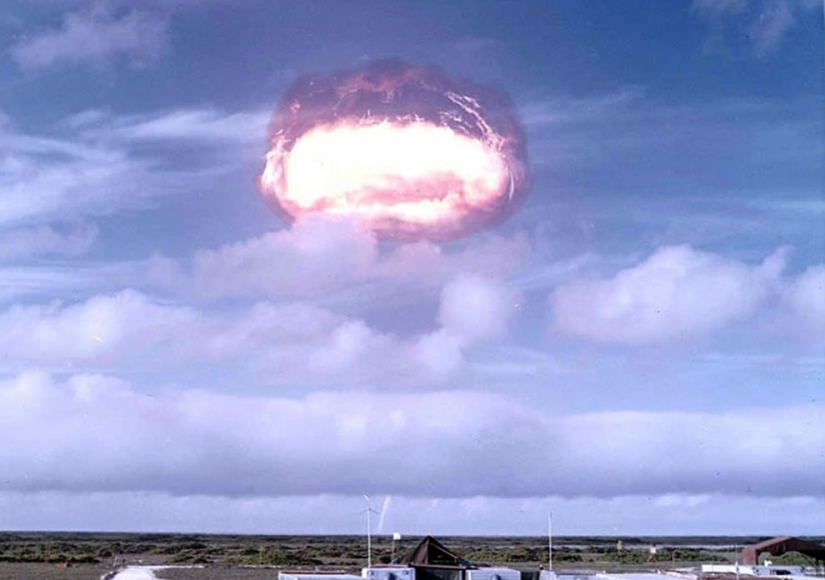
Fireball test test "Aztec", which is part of "operation Dominic" in Nevada. (U. S. Department of Defense)
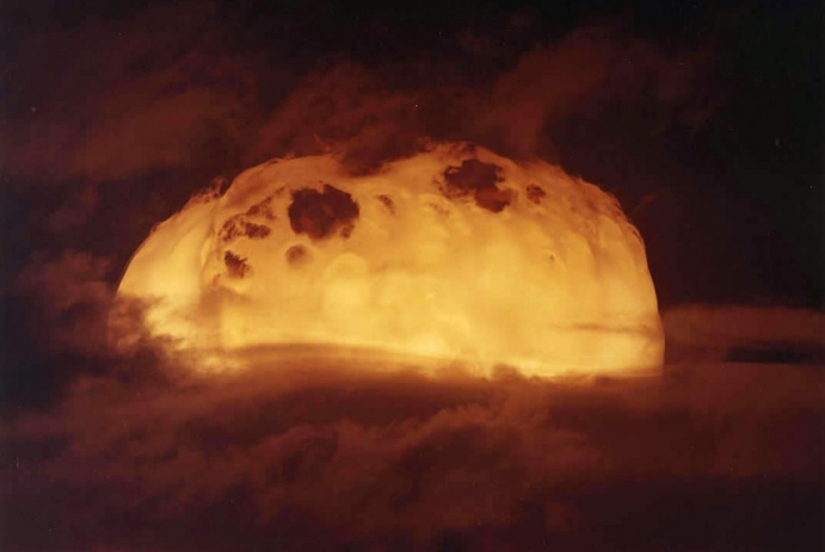
Part of a series of high-altitude nuclear tests Fishbowl Bluegill — explosion capacity of 400 kilotons in the atmosphere at the altitude of 48 km above the Pacific ocean. The view from the top. October 1962. (U. S. Department of Defense)
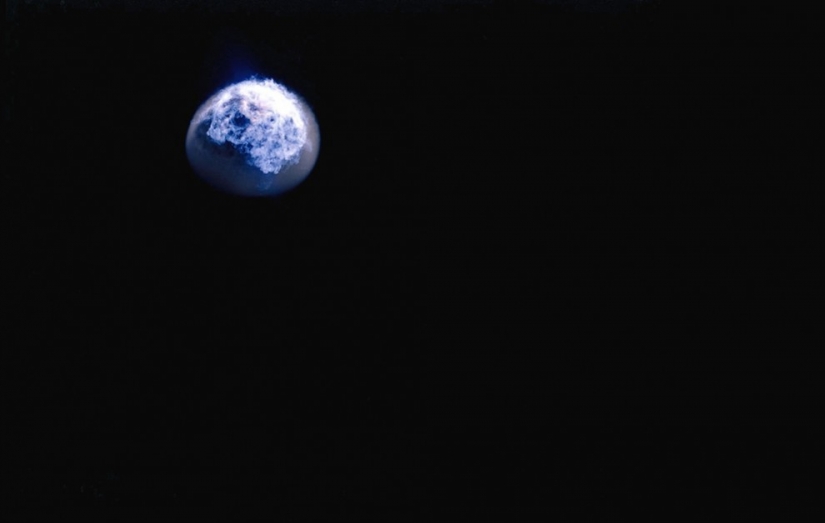
Ring around the nuclear mushroom during a test project Yeso in 1962. (U. S. Department of Defense)
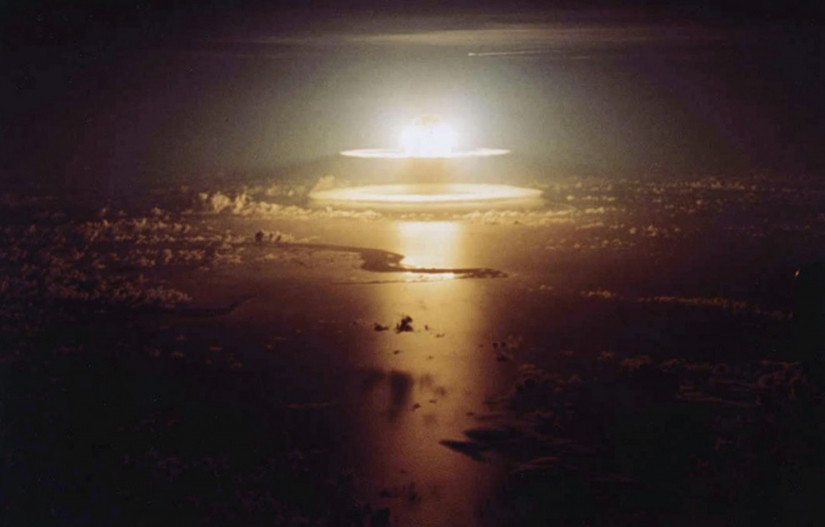
The Sedan crater was formed after the explosion of 100 kilotons of explosives at a depth of 193 meters under the loose sediments of the desert in Nevada July 6, 1962. The crater turned out to 97 meters deep and 390 meters in diameter. (National Nuclear Security Administration / Nevada Site Office)
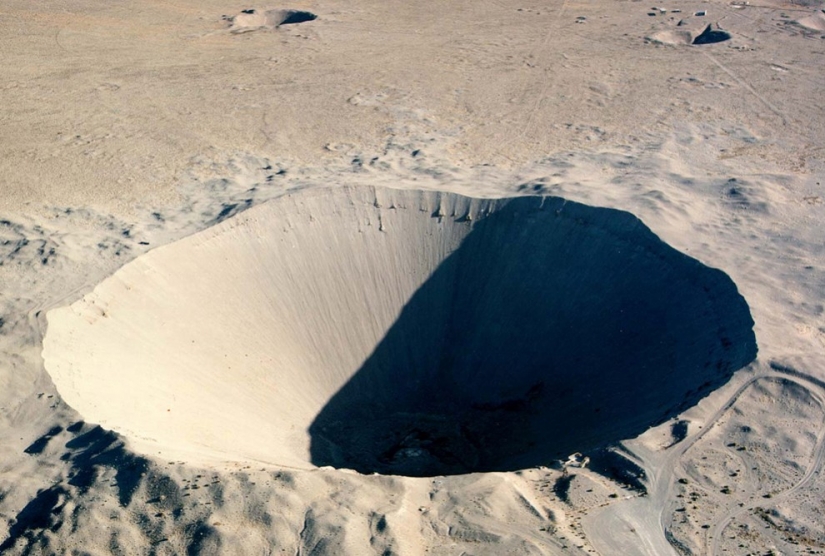
Photo of a nuclear explosion of the French government at the Mururoa Atoll in 1971. (AP Photo)
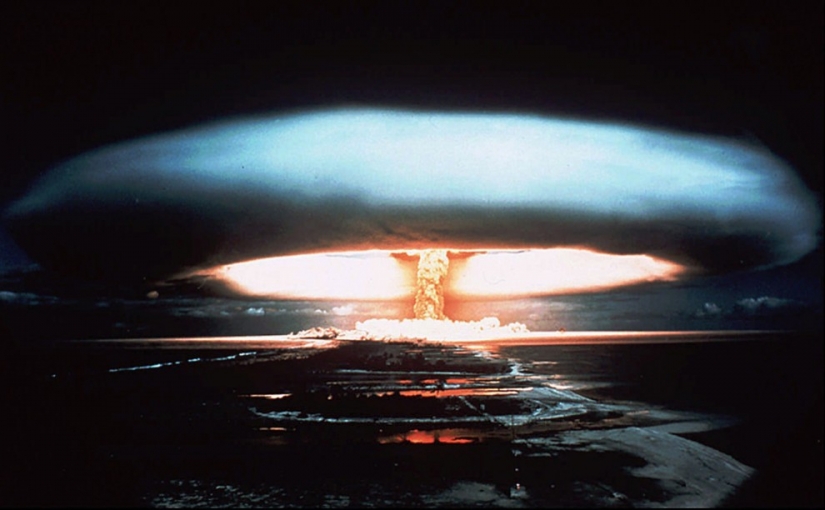
The same nuclear explosion at Mururoa Atoll. (Pierre J. / CC BY NC SA)
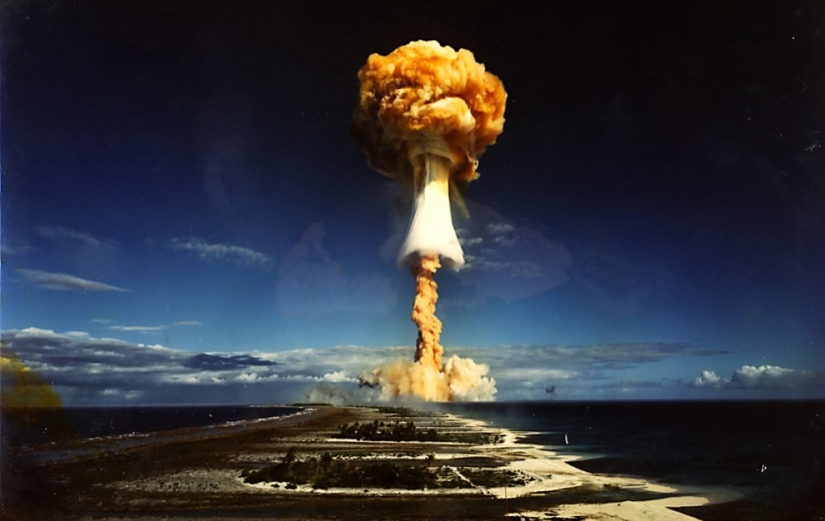
"Survivor city" was built in 2286 meters from the epicenter of a nuclear explosion with a capacity of 29 kilotons. The house has remained virtually intact. "Survivor city" consisted of houses, office buildings, shelters, power sources, communications, radio stations, and "residential" caravans. The test, code named the Apple II was held on 5 may 1955. (U. S. Department of Defense)
Keywords: Atomic bomb | Bomb | Explosion | Test | Nuclear weapons
Post News ArticleRecent articles

It's high time to admit that this whole hipster idea has gone too far. The concept has become so popular that even restaurants have ...

There is a perception that people only use 10% of their brain potential. But the heroes of our review, apparently, found a way to ...
Related articles

Explosions of smartphone batteries and short circuits in sockets no longer become a sensation, but few people know that the danger ...

On August 26, 1980, the night administrator of the Harvey’s casino and hotel, located in Nevada, found a large object covered ...

On August 17, 1988, a Tu-154B plane with 176 people on board took off from Kiev to Kuibyshev (now Samara). Among them was ...

New Year's is a time to surprise and delight loved ones not only with gifts but also with a unique presentation of the holiday ...